by Savannah Baker | Sep 29, 2025 | Field Story, ITEN
Dear Friends,
Nathan R. Moser works in Nepal with the International Theological Education Network (ITEN) for EPC World Outreach.
According to the Nepali calendar, the year is 2081. Most countries of the world have accepted the standard counting of years from Anno Domini, Latin for the “year of our Lord,” roughly counted from the birth of Jesus. The Nepali calendar starts in a different place.
If you are type-A person when it comes to time, Nepal will adjust you like a ham-fisted chiropractor. Our classes always started late, but just right for “Nepali Time.” If you can score some “Nepali Tea” while taking your “Nepali Time,” all the better.
Nepal breaks another rule of time. The clocks of the Royal Observatory in London set the world standard according to Greenwich Mean Time, or GMT. Most countries follow time zones that add or subtract whole hours relative to GMT, but not Nepal. If it is 12 a.m. in London (GMT), it is 6:15 a.m. in Nepal.
And there is still something else. Did you know that people age faster at higher altitude? This is not only because of sun exposure, or a thin atmosphere, or the cold. Einstein’s theory of relativity proved that time itself is curved. People of the Himalayas pass time slightly faster than people at sea level.
After our ITEN Bible course, I met what looked to me like an older man. He traveled from a high mountain village to learn with us in the valley of Nepalgunj. His skin was darkened and weathered tight. His home village was still covered with snow in the springtime, as it is much of the year. He smiled at me like a happy churchman. I learned that he was fully one year younger than I am. I took a hard look at the picture we took together. He did not look so old, and I did not look so young. Now I was counting the time wrong.
With my Himalayan friend I look to the Ancient of Days and the Eternal Son. We stand together, brothers, in time and out of time, saved for the great renewal of all things. By the Divine word we labor together, back to our villages and out into fields, for the harvest of all peoples.
By Nathan R. Moser
Nepal is one of the many ITEN sites that serves national Christian leaders in places where the gospel is largely unknown and education is limited. Through ITEN, these leaders are equipped to minister to their own people and send their own missionaries to unreached people groups. Click here to support the work of ITEN.
by Savannah Baker | Sep 8, 2025 | Church Partnership, Field Story, ITEN
Dear Friends,
Partnership. One small word that is absolutely essential for the work of World Outreach. There are many ways partnership plays into World Outreach’s work, and one of those ways is the partnering of local, indigenous believers around the world with WO’s ITEN, the International Theological Education Network.
ITEN serves national Christian leaders in places where the gospel is largely unknown and education is limited. These leaders are equipped to holistically share the gospel with their own people, and Sierra Leone is one of the various ITEN sites throughout the world.
The EPC’s work in Sierra Leone began more than 20 years ago with Memorial Park Church from the Presbytery of the Alleghenies spearheading the effort. Throughout the years of investment by the EPC, local people began to profess faith in Christ, and they eventually formed their own EPC denomination, the Evangelical Presbyterian Church of Sierra Leone (EPCSL), which is active in the Muslim majority villages of north Sierra Leone.
With the formation of the denomination came the urgent need to educate and equip local Christian leaders. So, in 2018, ITEN began working with the local churches of Sierra Leone. World Outreach ITEN workers such as Bruce Anderson, Mike Kuhn, Ed and Nan McCallum, and Steven Woodworth helped teach the nine courses required for graduation from the program.
Two local believers, Pastor Thomas and Pastor Abraham, graduates from the program themselves, are now facilitating the education with the support of ITEN. The program is not accredited by an academic institution, but EPCSL recognizes the ITEN training, called by them the Pastor Training Program (PTP), as their own ordination prerequisite. This education model, known as “non-formal theological education,” has become essential for training the rapidly growing churches of the developing world. In fact, theological seminaries and schools can produce only a small fraction of pastors and leaders needed to keep pace with church growth in the developing world. Thus, there is a great need for non-formal theological training.
Pastors in the EPCSL identify people they believe to be good candidates for the program. These candidates become students who attend 5-day course intensives 2-3 times a year. The EPCSL has produced two cohorts of graduates from this program, most of whom are now serving as evangelists, Sunday school teachers, and outreach leaders in their various communities.
Sierra Leonean Pastor Thomas said that the program focuses on equipping pastors for the holistic development of the people they will be ministering to—both the spiritual and physical needs. He says, “Most of the churches are engaged in little developmental projects like rice farming, groundnut farming, Bennie [local version of sesame] farming, local chicken poultry and many more. The inspiration to do all this comes from the PTP community development module.”
The work of ITEN in Sierra Leone is tangibly changing lives. The EPCSL, which began with 6 churches, now has 26 churches in the process of being planted by PTP trainees. While ITEN comes in as a partner to the EPCSL, it is the local church that oversees and runs this program. Believers from this corner of the world are taking up the mantle—they are discipling their own people, planting reproducing churches, and proclaiming the gospel to those who have never heard. Praise the Lord for the work He is doing!
Want to learn more or get involved with the work of ITEN? Click here to give to the work of ITEN and learn more.
by wpengine | Aug 27, 2019 | Biblical/Missional, ITEN
Dear friends,
During my first trip to India I taught a course on the five solas of the Reformation. The national leaders who organized the event had reserved the upper room of a Catholic charity for the day and filled it with plastic lawn chairs. As I arrived early, I entered the hot and humid room to find several adults and their children sleeping on the concrete floor. After backing out of the room quietly I notified our national partners, who simply smiled. “They were so concerned that they might miss the teaching, they took a train here last night.” It is a moment I will never forget, and it is one that I speak about often as I try to help others understand the enormous need for theological education around the globe.
At the very inception of the modern missionary enterprise, theological education and ministerial training have always been foundational values of global evangelization. From the historic 1910 World Missionary Conference in Scotland to the Third Lausanne Congress held a century later in Cape Town, South Africa, missionaries and scholars alike have long agreed that “The promotion of theological education is a life and death issue for Christianity.”*
Recognizing such a need, Presbyterians in particular have often taken a lead role in the sphere of Christian education in global missions. From Ralph Winter’s groundbreaking and innovative Theological Education by Extension (TEE) program to more modern enterprises such as Richard Pratt’s Third Millennium Ministries, a Reformed perspective on global missions has often ensured a strong commitment to the holistic practice of ministering to the whole person – body, spirit, and mind.
Sharing this same commitment, the EPC World Outreach charged Rev. Dr. Bruce Anderson with the task of forming The International Theological Education Network (ITEN) in 2010 with the goal of fulfilling the denomination’s commitment to full-cycle church planting – planting churches among the unreached who will plant churches among the unreached. Towards this end ITEN has had the privilege of watching the light of the knowledge of God to some of the most remote parts of the world including Pakistan, Siberia, Vietnam, and Myanmar.
In each of these places we continue to hear the same refrain that while technology and globalization are making more education available to more people than ever before, it is still insufficient for the growing need. Time and time again we hear from national leaders that the greatest barrier to evangelism is not radical or fundamentalist forms of religion, but false teachers who are making it increasingly hard for people to know the difference between the gospel of health and wealth and the gospel of Jesus Christ. This is why the EPC continues to affirm that any vision for church planting is futile without the simultaneous training of leaders. As Makie Stiles stated recently at The Gospel Coalition 2019 national conference, “If you don’t know what a church is, you’re going to have a very hard time planting one.” Such is the conviction of ITEN and the EPC World Outreach who are eager to continue to embody the historical vision of global missions first given to us by Christ himself: make disciples and teach them (Matt. 28:19).
*Detrich Werner, ed. Challenges and Opportunities in Theological Education in the 21st Century(Edinburgh 2010: International study group on theological education, World Study Report, 2009), 81
By Dr. Steve Woodworth, ITEN Associate Coordinator
by wpengine | Aug 29, 2017 | ITEN, Mission Story, Steve Woodworth
From the WO web guy:
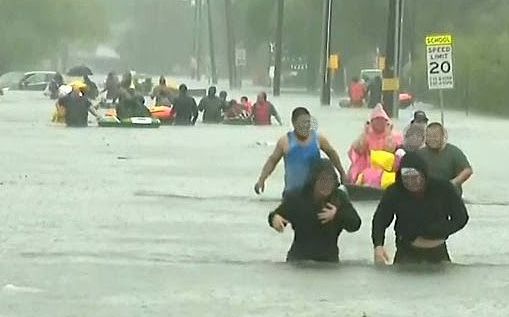 As I prepare this post, I sit in my home just outside of Houston, TX and I am experiencing the fifth day of the devastating flooding in Southeast Texas. My experience is mild compared to many in the Houston area. The attention of America and many parts of the world has been directed towards Houston and the many images of tragedy broadcast through the television airways. Tens of thousands of people have been displaced, tens of thousands have lost everything and yet to date the current estimate is only a merciful 8* deaths.
As I prepare this post, I sit in my home just outside of Houston, TX and I am experiencing the fifth day of the devastating flooding in Southeast Texas. My experience is mild compared to many in the Houston area. The attention of America and many parts of the world has been directed towards Houston and the many images of tragedy broadcast through the television airways. Tens of thousands of people have been displaced, tens of thousands have lost everything and yet to date the current estimate is only a merciful 8* deaths.
A day before Hurricane Harvey began its destructive path through Texas, Dr. Steve Woodworth had sent me this story to post on the WO website. Steve is one of World Outreach’s ITEN associates. I thanked him but did not have time to open and read until today. Reading it today reminds me again that I am not the only person in the world with troubles. Houston is not the only city in the world with troubles. And while Houston troubles are close at hand, Steve reminds me there are other places in the world also suffering the consequences of a fallen world and in great need of a savior.
Whether in a big city in America or a small village in Africa, the truth and hope of the Gospel is needed, especially in times when fear and loss seem to prevail.
In the big city, pastors of churches give comfort to many with words like the ones shared by my friend, Pastor Richard Harris of Christ EPC in Houston, as he shared Psalm 121 in a letter to the congregation and on Facebook to a city. Although only a snippet of these words of wisdom, let me share a couple of lines…
Psalm 121:1 I lift up my eyes to the hills. From where does my help come? Who will help us? We are on this long, hard, dangerous journey through this life to the heavenly Jerusalem, and it is full of floods, storms, obstacles, brokenness, and sin. We get scared, tired, confused and we consider giving up. Who will protect us? Who can we trust? Who will see to it that we make it all the way home? Psalm 121:2 My help comes from the LORD, who made heaven and earth. Who will help us? There is only one answer. There is only one who can help. The answer is that Yahweh, the covenant making and keeping Lord, who made heaven and earth will help us.
In the small village, Steve shares his story about pastors to unreached people groups throughout the land, sacrificing their health, financial gain, and personal safety to spread the light of Christ to regions cloaked in darkness.
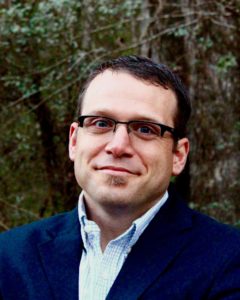 From Steve Woodworth:
From Steve Woodworth:
Rokassa. The name of the village took me several days to pronounce correctly, although the hospitality of the inhabitants made me feel immediately at home. And even as I bumbled my way through the cultural divide, they repeatedly honored me with gracious generosity. From the moment you arrive, the children in the village will gather around you, asking for you to take their picture. With salutes, raised thumbs, and bursting smiles, they will hold their poses as long as the camera keeps rolling.
My journey to Rokassa came during the rainy season, when the tin roof of our dwellings and puddle-filled roads provided a setting for teaching where tranquility and a sense of silence seemed to pervade the land. The vegetation was green and the nights were punctuated by the sounds of bleating goats and foreign birds. Life in the village is simple. Electricity is scarce, available for a few short hours each day, and our showers came by way of a plastic tub of collected water and cup to pour over our heads. Our students slept of the floor of a local hospital and dedicated more than 7 hours each day to their studies in a small classroom within the village school.
We had come to Sierra Leone to assist local leaders with the continuing develop of a growing seminary called RBI (Reformed Bible Institute). Over the course of 5 days, we taught theology, pastoral ministry, church history, ethics and leadership to a class of over 40 students devoted to seeing the Kingdom of Christ come to this corner of His world.
Some are former Muslims who have already sacrificed family and their former communities. Now, as pastors to unreached people groups throughout the land, they sacrifice their health, financial gain, and personal safety to spread the light of Christ to regions cloaked in darkness. As we huddled together in our crowded classroom, we learned as much as we taught. We worshiped together without instruments and the pure voices of these emerging leaders filled the village with declarations that “Jesus Christ is Lord.”
The work, we were told, is difficult. The spiritual soil in many places is tough for planting. And yet there was an unshakable belief in the faithfulness of God to bring his promises for Sierra Leone to fruition. The evidence was all around us. Amidst a Muslim village of 500 inhabitants there now sits a Christian school, a hospital, and a classroom full of over 40 converts who have been called to minister the gospel to the next generation. Of course, we always desire more. We always wish for things to come more quickly. But our God is a patient God who has revealed to us the certainty of human history. These pastors we gathered with are the glorious “first fruits” of a movement of God’s Spirit that is spreading like a fire across Western Africa, reclaiming what was once lost to superstition, magic, tribalism, and the dark veil of Islam. In the eyes of these pastors we saw the future. A light on the hill of Africa illuminating Christ into the hearts of every tribe, nation and tongue.
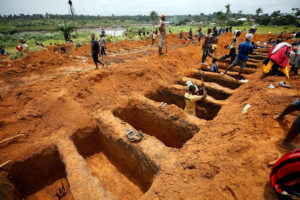 But the rain kept coming.
But the rain kept coming.
It poured out of the heavens for days upon days until the soil on a hillside outside of Freetown broke free and roared its way into villagers down below. Hundreds of lives were lost, hundreds more were displaced and left homeless. In a country that has suffered for so long under dictators and diseases, the latest tragedy in Sierra Leone could (and most likely will) be interpreted by some as a cosmic curse on a land full of violence and corruption.
But those critics will not have met the men and women I did. They won’t have listened to their singing. They won’t have heard their visions. They won’t have witnessed a new generation of leaders who are willing to leave their families for weeks, travel hundreds of miles, and sleep on concrete floors to study the word of God. Men and women who believe that the power of God is infinitely more potent than the spells of a witch doctor, prayers to the spirits, allegiances to secret societies or the hollow promises of false prophets. Men and women who are peering into the heart of a wounded country to offer them a lasting hope in the love of a Father who is calling his children to come home. A Father, who when the flood waters recede, will use his Church to bring healing to a country longing for salvation.
“Come, let us return to the Lord.
He has torn us to pieces
but he will heal us;
he has injured us
but he will bind up our wounds.
After two days he will revive us;
on the third day he will restore us,
that we may live in his presence.
Let us acknowledge the Lord;
let us press on to acknowledge him.
As surely as the sun rises,
he will appear;
he will come to us like the winter rains,
like the spring rains that water the earth.” – Hosea 6:1-3
*The Texas death count has climbed to over 30 as of 9/9/17.
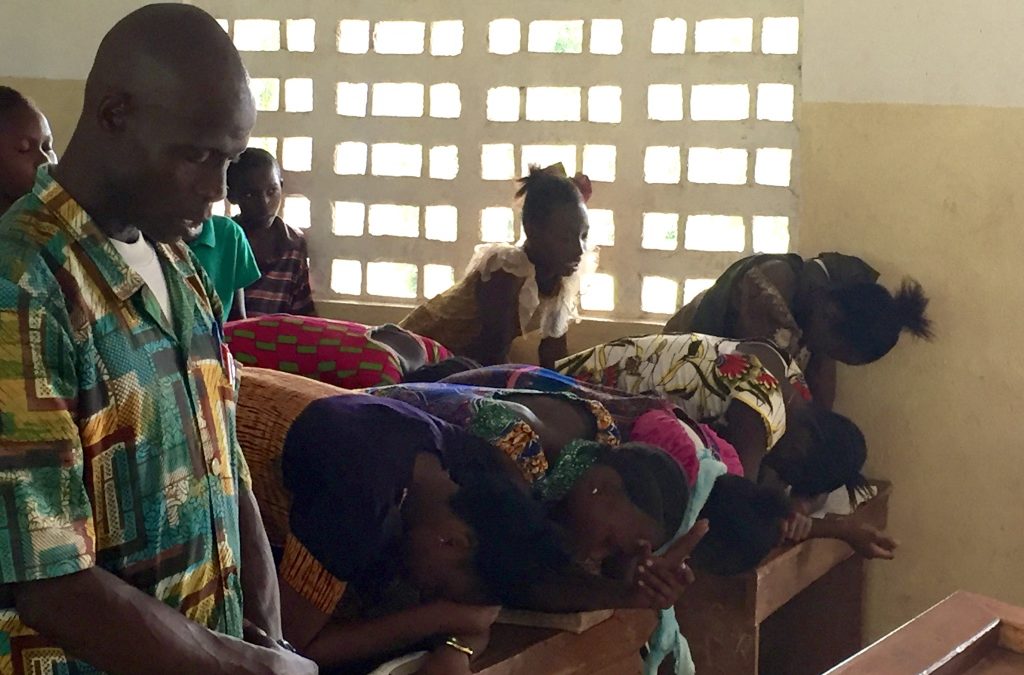
by wpengine | Jan 5, 2017 | ITEN, Uncategorized

By Steve Woodworth, Associate Coordinator of ITEN
The paved highway ended and we turned onto red dirt roads made slick by the rainy season. Two lanes soon become one and turned upward through a potholed maze of boulders and washed-out trails, that twisted our truck higher and higher into the thickening canopy. When the trail stopped, we faced a swollen river and a weary ferry driver unable to navigate our vehicle across the water atop his wooden raft. With hippos grazing along the banks downriver, we boarded dug-out canoes and turned our bows upstream to let the current point us towards the far bank.
Greeted by a throng of villagers eager to catch a glimpse of white visitors, we quickly saddled awaiting dirt bikes that carried us deeper and deeper into the jungle. We raced our way along battered paths, trying to beat the setting sun. Pouring rains had caused local rivers to spill their banks and fill our shoes as the bikes tore through the water into the coming darkness. We gripped the sides of the bikes and learned the rhythms of shifting our positions on the back seat when climbing the root-littered embankments, or plunging down a sudden drop.
Our drivers travel this same path dozens of times each day, their expertise proven when swamped headlights went black and memory and moonlight was the only thing guiding us. For twelve hours we pushed deeper and deeper into the forests of Sierra Leone until the cycles came to a stop just 50 miles south of Guinea.
We had made this journey to meet a family.
Nestled in the heart of this Muslim village was a man named Dominic who had left his job as a lab technician at the University of Sierra Leone in order to bring the gospel to a people who are trapped in a syncretistic world of witch doctors, animism, Islam and folk religion. For over a year, he and his family lived on the concrete floor of a small schoolhouse until the locals pushed him out into the borders of the community.
Eventually, Dominic built a home and signaled to the village that he was committed to staying, to preaching, to living the gospel before their very eyes and loving them into the Kingdom of Heaven. Dominic and his family have made sacrifices that both humbled and inspired me. He is desperately alone ministering 23 miles, through the thick jungle, to the closest church in the region. And he has surrendered every comfort his family once knew in the city of Freeport. During our meal after worship, Dominic’s wife removed the bare chicken bones from my plate and placed them on her own to try to remove anything I might have missed.
But there was laughter and there was joy. There was vibrant worship, and abundant fruit from the labor.
In the years since Dominic first made the journey to these people, the local Muslim Chief has given permission for parents to allow their children to become Christians. When we preached at Dominic’s church the following morning, this same Chief made his first appearance at the worship service. The village’s Muslim Treasurer asked for our prayers simply because “the prayers of Christians are powerful.” The congregation Dominic shepherds is full of young faces who signal a change sweeping through the jungle, a new era when the demonic powers of Secret Societies, spells, and spirits are finally broken. An age in which the Spirit of the living God comes to set the prisoners free, casts out all fear, and allows the people of Sierra Leone to finally cry out “Abba, Father.”
There is no darkness in this world through which the gospel cannot shine.
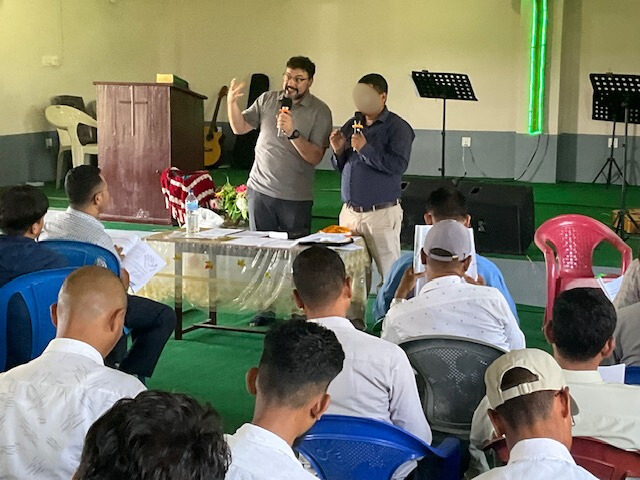

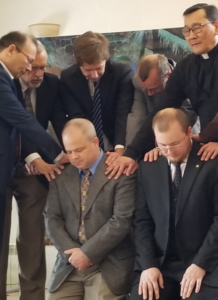 For the past six years EPC World Outreach’s International Theological Education Network (ITEN) has partnered with Holy Trinity Church’s Reformed Bible School to train students to understand the whole story of the Bible, interpret it within its context, and apply it to seeking the lost. Just before Holy Trinity Church was received into the ERC, eighteen students from Russia, Kazakhstan, and Kyrgyzstan came to Holy Trinity for two intensive seminary classes – Theology 1 (taught by the director of Baltic Reformed Theological Seminary in Riga, Latvia), and Church Planting and Development (taught by Ed and Nan McCallum). This convergence of theology and church-planting was a wonderful picture of ITEN’s core mission – to train trainers who will equip their own people to live on mission for the Glory of God among the unreached.
For the past six years EPC World Outreach’s International Theological Education Network (ITEN) has partnered with Holy Trinity Church’s Reformed Bible School to train students to understand the whole story of the Bible, interpret it within its context, and apply it to seeking the lost. Just before Holy Trinity Church was received into the ERC, eighteen students from Russia, Kazakhstan, and Kyrgyzstan came to Holy Trinity for two intensive seminary classes – Theology 1 (taught by the director of Baltic Reformed Theological Seminary in Riga, Latvia), and Church Planting and Development (taught by Ed and Nan McCallum). This convergence of theology and church-planting was a wonderful picture of ITEN’s core mission – to train trainers who will equip their own people to live on mission for the Glory of God among the unreached. 

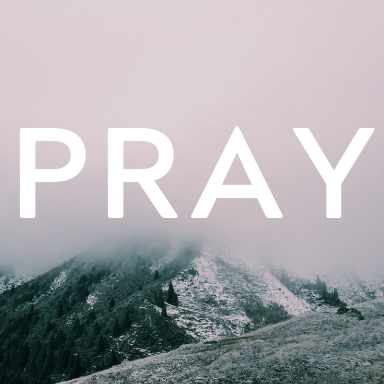



 As I prepare this post, I sit in my home just outside of Houston, TX and I am experiencing the fifth day of the devastating flooding in Southeast Texas. My experience is mild compared to many in the Houston area. The attention of America and many parts of the world has been directed towards Houston and the many images of tragedy broadcast through the television airways. Tens of thousands of people have been displaced, tens of thousands have lost everything and yet to date the current estimate is only a merciful 8* deaths.
As I prepare this post, I sit in my home just outside of Houston, TX and I am experiencing the fifth day of the devastating flooding in Southeast Texas. My experience is mild compared to many in the Houston area. The attention of America and many parts of the world has been directed towards Houston and the many images of tragedy broadcast through the television airways. Tens of thousands of people have been displaced, tens of thousands have lost everything and yet to date the current estimate is only a merciful 8* deaths. From Steve Woodworth:
From Steve Woodworth: But the rain kept coming.
But the rain kept coming.
Recent Comments